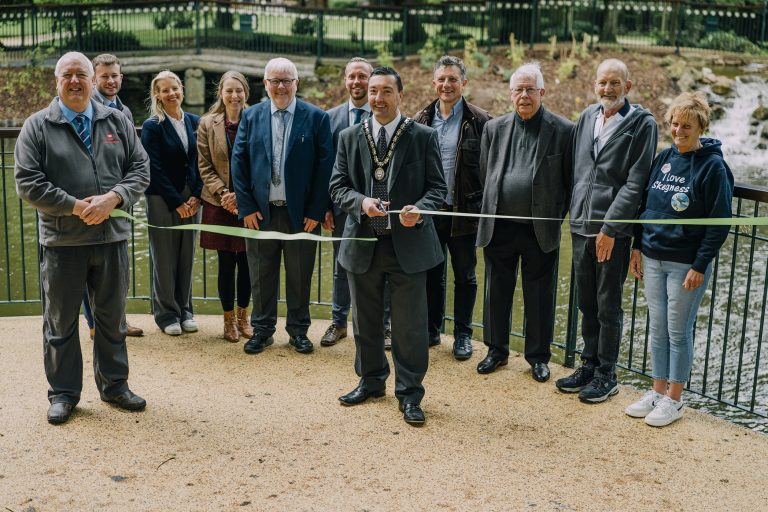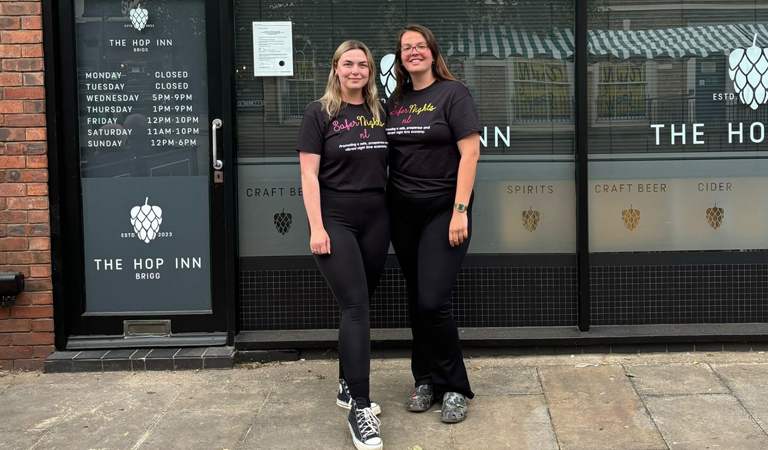Horse rescue charity puts 17 jobs at risk in response to £2.5m funding deficit
Phase one of landmark Skegness Tower Gardens landscape renovations complete
Hull-based MKM chooses Cumbria for latest branch opening
Training provider names new head of marketing programmes
Bedmaker and components manufacturer expands further into international markets with key appointments
Boutique hotel acquired in York
Expressions of Interest open to secure lead development partner for Hull’s East Bank Urban Village
Family haulage business closes doors after eight decades
Stake snapped up in Lincolnshire offshore wind farm
Output volumes unchanged but expectations remain positive amongst manufacturers
- Output volumes were broadly unchanged in the three months to June after rising in the quarter to May (weighted balance of +3%, from +14% in the three months to May) and were equivalent to the long-run average. Output is expected to rise modestly in the three months to September (+13%).
- Output increased in only 4 out of 17 sub-sectors, in the three months to June, with growth in the food, drink & tobacco, motor vehicle & transport sector, and plastics and furniture & upholstery sub-sectors broadly offset by falls elsewhere.
- Total order books were reported as below “normal” in June but improved sharply relative to last month (-18% from -33%). The level of order books remained slightly below the long-run average (-13%).
- Export order books were also seen as below normal and deteriorated relative to last month (-39% from -27%). This was also below the long-run average (-18%) and was the weakest outturn since February 2021.
- Expectations for average selling price inflation accelerated in June (+20%, from +15% in May) – well above the long-run average (+7%).
- Stock adequacy for finished goods were unchanged from June, with a net balance of manufacturers reporting that stocks were “more than adequate” standing at +14%, broadly in line with the long-run average.
Paint recycling firm relocates to new premises in Leeds
Two in the running for housing sector achievement awards
Gainsborough cinema on track for 2025 opening
Charity walks raise more than £4,000 for good causes
Yorkshire digital marketing firm acquires web development agency
Lincoln emerges as promising location for successful AI enterprises
North Lincolnshire businesses sign up to Safer Nights charter
Eddisons secures new tenant for Lincoln’s Carlton Centre
Businesses get new guidance from Security Industry Authority
- Guide to the SIA’s business services
- Setting up an SIA business account
- Using the SIA’s Licence Status Checker or Licence Pay Only services
- Keeping your SIA online account up to date
- Telling the SIA when something changes
- Overview of the Public Space Surveillance (CCTV) licence
“We’ve been reviewing the advice and guidance we make available to customers to identify what more we can do to make the information more visual and easily understood. The new videos were developed as part of a wider review by our licensing team, keeping the customer experience at the forefront throughout.
“We will continue to monitor our contact strategy and continuously improve the advice and guidance we publish to help make the application process as straightforward as possible for new and returning customers.”
The Security Industry Authority is the organisation responsible for regulating the private security industry in the United Kingdom, reporting to the Home Secretary under the terms of the Private Security Industry Act 2001. The SIA’s main duties are the compulsory licensing of individuals undertaking designated activities and managing the voluntary Approved Contractor Scheme.Bradford College secures £2.6m grant for energy-efficiency works
Delivered by Salix and run by the Department for Energy Security and Net Zero, the Phase 3c Public Sector Decarbonisation Scheme (PSDS) aims to slash energy bills and reduce carbon emissions.
The Scheme targets public sector buildings that still use fossil fuels for heating, hot water, and catering. In total, more than £530 million of funding is being handed to schools, hospitals, fire stations, universities and other public buildings across the country to help tackle climate change.
With a Bradford College contribution taking the funding total to over £3 million, the project will connect the David Hockney building and Advanced Technology Centre to the Bradford Energy Network by March 2026. Networks such as this produce heat on a large scale from the same source to buildings that are separated by miles.
Bradford has one of the UK’s largest Air Source Heat Pump installations. Buildings on the Bradford district heating network will benefit from an 85-90% reduction in emissions, contributing to a city-wide reduction in emissions of approximately 8,000 tonnes of carbon dioxide equivalent in the first phase of the network.
Bradford College is one of 189 public sector organisations nationwide that were awarded grants for heat decarbonisation and energy efficiency schemes. Work will also cover improvements to hot water distribution systems, pipework insulation, and emitter and substation upgrades.
Pamela Sheldon, Head of Projects at Bradford College, said: “Bradford College is committed to reducing its carbon footprint. This latest funding will be a huge boost to our decarbonisation strategy.
“Over the last two years, Bradford College has secured nearly £32 million in funding incorporating the PSDS grant. This substantial investment is helping us to rethink, reshape, rework, and rebuild aspirational new sustainable facilities in the heart of Bradford.”
The Public Sector Decarbonisation Scheme was launched in 2020 and Phase 3 of Scheme was announced in 2021 to reduce fossil fuel usage and make public buildings more comfortable and efficient to heat. Phase 3c is the latest funding released by the Department for Energy Security to achieve net zero targets.
Director of Programmes at Salix Ian Rodger said: “Climate crisis is one of the greatest challenges of our time and we are pleased to be working with Bradford College on reducing its carbon footprint.
“Our teams will work closely with the college as they progress their decarbonisation journey, ensuring these buildings not only become more energy efficient but better places in which to work and study.”
Alongside this grant, other upcoming Bradford College capital work includes improvement of the fabric of buildings for optimum thermal performance, the incorporation of high levels of natural daylight to reduce artificial light sources in new buildings, energy-efficient LED lighting and optimising lighting control, as well as adding social value by targeting local SME labour and supply chains.






















